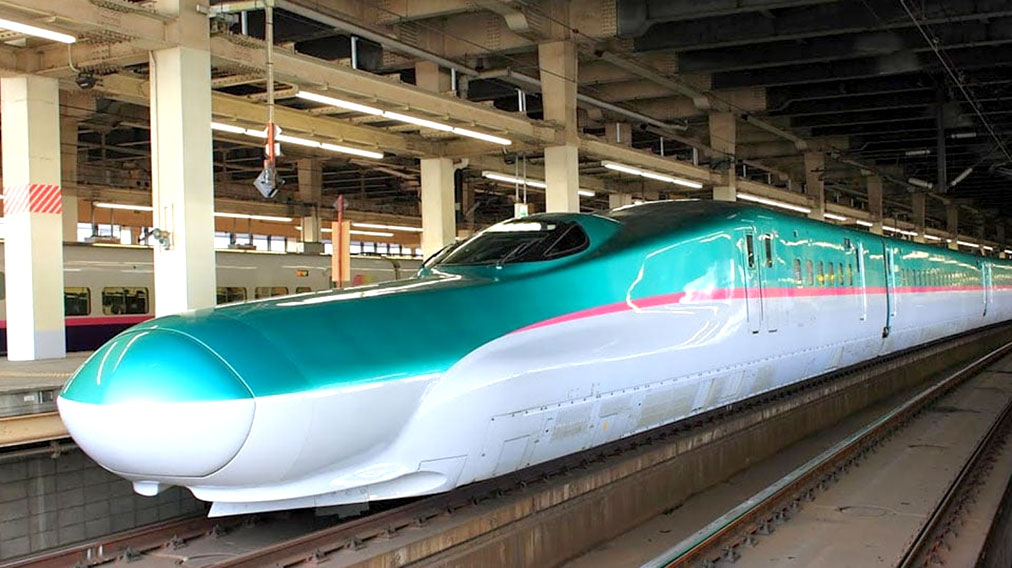High-speed train via Bengaluru to reach Chennai in just 2 hours and 25 minutes.
Mysuru-Chennai to be a High-Speed Train Corridor

High-speed train via Bengaluru to reach Chennai in just 2 hours and 25 minutes.
New Delhi: The Railways has identified six sections including the 435-km Mysuru-Bengaluru-Chennai for high-speed and semi-high-speed corridors, Railway Board Chairman V.K. Yadav said yesterday, adding that a Detailed Project Report (DPR) on these sections will be ready within a year.
The new corridors will join the under-construction Mumbai-Ahmedabad high-speed route. Trains can run at a maximum speed of over 320 km per hour on a high-speed corridor, while on a semi-high speed corridor, the maximum speed can go beyond 160 km per hour.
In a briefing ahead of the Union Budget, Yadav said the six corridors include the Delhi-Noida-Agra-Lucknow-Varanasi (865 km) and the Delhi-Jaipur-Udaipur-Ahmedabad (886 km) sections. Other corridors are: Mumbai-Nashik-Nagpur (753 km), Mumbai-Pune-Hyderabad (711 km), Chennai-Bengaluru-Mysuru (435 km) and the Delhi-Chandigarh-Ludhiana-Jalandhar-Amritsar (459 km) sections.
“We have identified these six corridors and their DPR will be prepared within a year. The DPR will study the feasibility of these routes which includes land availability, alignment and a study of the traffic potential there. After these things are studied, we will decide if they will be high-speed or semi-high-speed corridors,” said Yadav.
It may be mentioned here that in August 2017, the Union Government had approved high-speed train between Mysuru and Chennai via Bengaluru.
In his presentation to the then Railway Minister Suresh Prabhu, the then Karnataka Chief Minister, Siddharamaiah had made a case for introduction of the high-speed train in addition to the Shatabdi train between Bengaluru and Chennai.
In November 2018, Germany had submitted its final feasibility report for the 435-km high-speed rail corridor between Mysuru-Bengaluru-Chennai to Indian Railways. Earlier, Japan had evinced keen interest on the project and had submitted a report in that regard. However, later Germany was asked to take up the feasibility study project.
Two hours and 25 minutes to Chennai.
Once the project is implemented, the high-speed train from Mysuru to Chennai via Bengaluru will take just two hours and 25 minutes as against the current seven hours in Shatabdi Express which is the fastest train on this route. On a normal train journey, it takes over 10 hours to travel between the two cities. Shatabdi travels at a maximum speed of 110 kms per hour.
The bullet train will run at a maximum speed of 320 kilometres per hour and the actual distance from Mysuru to Chennai is over 485 kilometres while the bullet train corridor will be 435 kilometres. Going by the train speed, it can cover the 145-km distance from Mysuru to Bengaluru in just 45 minutes.
Integrated with existing rail lines.
The key result of the feasibility study is that the high-speed train on the route is not only feasible but also manageable. The Germans have proposed that high-speed Railway should be integrated with the existing rail lines to reduce land acquisition issues.
The final proposal by Germany aims to implement the project by 2030 at a cost of Rs.1 lakh crore (16 billion dollars).
According to the proposal, 85 percent of the line is proposed to be elevated and 11 percent through tunnels. The rest five percent will be ‘on grade.
Source: starofmysore.com/mysuru-chennai-to-be-a-high-speed-train-corridor/


